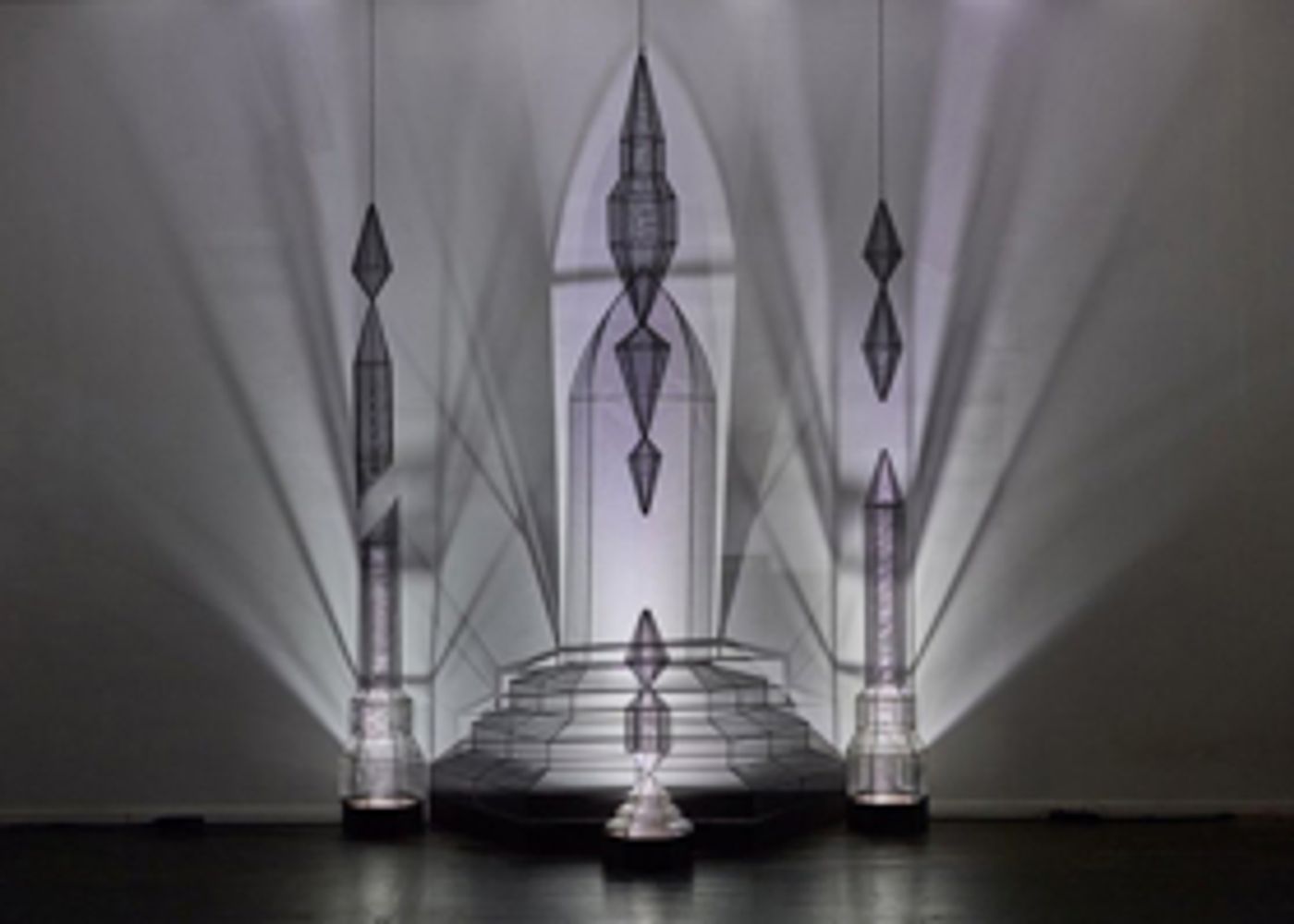Frist Art Museum Presents First Solo Museum Exhibition Of Iranian American Artist Afruz Amighi

The Frist Art Museum presents critically acclaimed Iranian American artist Afruz Amighi's first monographic museum exhibition, The Presence of Your Absence Is Everywhere, on view in the Gordon Contemporary Artists Project Gallery from June 22 through September 16, 2018. Celebrated for her lyrical transformation of inexpensive materials into ethereal installations and sculptures, Amighi uses light and dark to wondrous effect.
Organized by the Frist Art Museum, the exhibition features Amighi's work from 2014 to today, a period of intense and prolific output in which the artist has relentlessly pushed herself in new directions. One sculpture and two drawings are being made especially for the exhibition, while two existing installations have never been shown in the United States.
Now living and working in Brooklyn, Amighi typically uses industrial materials found in her own urban environment. In her architectural sculptures, Amighi dramatically illuminates steel, fiberglass mesh, and chains to create intrigue, explore dualities, and mimic the effect of more decadent luxury objects. By borrowing elegant, radiant forms from sacred architecture, she induces feelings of wonder often missing from our predominantly secular world. The exhibition includes Nameless (2014), an installation inspired by medieval Spanish mosques repurposed as churches during the Christian Reconquest of the Iberian Peninsula, and My House, My Tomb (2015), a diptych which explores myths about India's majestic Taj Mahal.
While growing up in New York, Amighi watched from afar as the Islamic Revolution (1978-79) and the Iran-Iraq War (1980-88) transformed her birthplace. For much of her artistic career, she has focused on her absence from Iran at a critical time in its history. Since 2016, however, American historical and contemporary sources have played a far more meaningful role in her thinking. "Over the past two years, Amighi has changed the emphasis of her work significantly," says Frist Art Museum Curator Trinita Kennedy. "She now recognizes an urgent need to address the current political moment in the United States, the place where she lives and her home since she was a small child. To express this desire to be more present in the here and now, she has begun making work that is figural."
The three new works on view include the ambitious sculpture We Wear Chains, which examines the current state of feminism. Four lithe women bear the features of both angels and demons, humans and animals. Bound together with chains-a form of adornment as well as bondage-the women struggle to find a way to advance together.
Inspired by a passage in a letter written by the American poet Edna St. Vincent Millay, Amighi selected the exhibition title The Presence of Your Absence Is Everywhere because it eloquently captures the shift in her purview since 2016. "Rather than focusing on her exile from Iran and her sense of detachment from her birthplace, she is now confronting the current sociopolitical moment in the United States and her experience and concerns as a person living here in this country," says Kennedy.
Image: Afruz Amighi. Nameless, 2014 Steel, fiberglass mesh, Wenge wood, ultrasuede, invisible thread, chain, and light. 168 x 132 x 96 in. Courtesy of the artist © Afruz Amighi. Photo: Jeffrey Sturges
Videos

